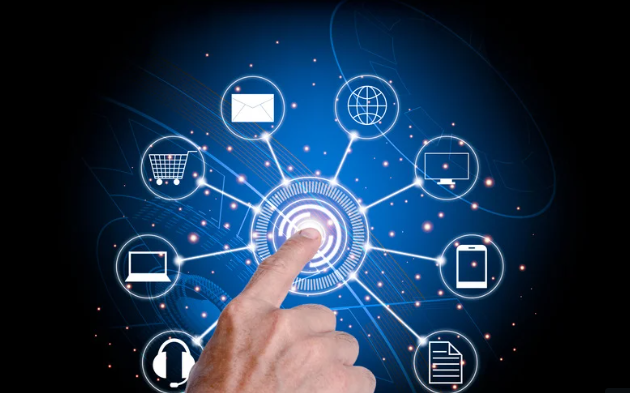My digital history
I began my working career in the late 1990s in an industry that had little to do with digitalization. Training racehorses, which could not be extensively digitalized. My most significant personal step towards digitalization was creating and learning to use an email account. I was living in Italy and only place access the internet was an internet café which I was visiting weekly, carrying coins to café owner to stay updated with the world’s changes. This was a worthwhile investment. Without this experience, returning to Finland and transitioning to academic studies would have been even more challenging after years in a job that required no digital skills.
The next industry I transitioned to in the early 2000s has undergone significant digitalization and continues to evolve. Tourism has been transformed over the past decade, fundamentally altering client behavior. I am currently employed in Revenue Manager position at a privately owned hotel chain in Lapland, which has made substantial advancements in its digital infrastructure over the past five years. While such changes occurred in larger global markets two decades ago, cloud-based technology has now made these advancements accessible to smaller companies.
In my first hotel job, prices were recorded in a paper notebook, and reservations were logged manually in a book. This was in 2004, and although the hotel had just a basic website and some social media marketing, online guest reviews were already crucial for business. Little did I know how much this initial experience would profoundly influence my 20-year career in the hotel industry.
My first encounter with a digital property management system (PMS) also took place in Italy. The system operated in Italian, relied solely on keyboard shortcuts, and resembled a Commodore 64 in its appearance. The check-in process seemed more time-consuming than manual entry. Fortunately, within a year, the hotel upgraded to the more modern Micros Fidelio system. Today, I use a cloud-based, significantly more advanced version of this PMS.
The methods for selling hotel capacity have also dramatically evolved over the past two decades. Five years ago, our company lacked a unified PMS for all seven properties, a channel manager, and any revenue management tools. Having previously worked in the capital area, I had witnessed the digital transformation and its impact. Digitalization has been a pivotal factor in my career, and I cannot imagine working in the hotel industry without the continuous development of digital solutions.
As I reviewed the videos and materials for this course, I was struck by the vast potential digitalization holds. Although I am not an innovator in hotel digitalization, I am committed to staying informed about existing possibilities that can enhance our operations—not just in revenue management but across all business and operational functions. This course has made me realize the importance of staying updated on new innovations. To keep abreast of the latest developments, I attend global webinars where system providers showcase their solutions. Even if I do not need a new solution immediately, these sessions provide valuable ideas and up-to-date information for future needs. Networking within the industry and staying informed is essential for remaining current and competitive.
Digital future of hospitality
Digitalization has the potential to revolutionize the hospitality industry in several key ways. One significant change is enhancing the guest experience through personalized services. By utilizing big data and AI, hotels can offer tailored recommendations based on individual preferences, improving guest satisfaction and loyalty.
Operational efficiency will also see substantial improvements. Advanced property management systems (PMS) and integrated software can automate routine tasks like check-ins and room assignments, reducing staff workload and minimizing errors. This allows staff to focus more on providing exceptional service.
Digitalization will enhance revenue management through dynamic pricing models. Real-time data and predictive analytics enable hotels to adjust prices based on demand, optimizing revenue and profitability. Cloud-based technologies democratize access to advanced tools, allowing smaller hotels to compete more effectively. This levels the playing field in the hospitality market.
Sustainability is another area where digitalization can have a significant impact. Smart energy management systems optimize energy use, reducing costs and environmental footprint. Digital solutions also support waste reduction initiatives. Marketing and customer engagement will improve as well. Social media, online reviews, and digital marketing tools enable hotels to reach and engage with a broader audience. Analyzing online feedback provides valuable insights into customer preferences, leading to more targeted marketing strategies.
In summary, digitalization is set to transform the hospitality industry by enhancing personalization, efficiency, revenue management, sustainability, and marketing.
Risks of open digital society
An open digital society offers many benefits but also comes with significant risks, primarily related to data privacy and security. The General Data Protection Regulation (GDPR), which came into force in 2016 and was applied from 2018, aims to mitigate these risks by strengthening data protection for individuals within the EU.
In my personal and working life, GDPR has had notable effects. On the positive side, it has increased transparency and control over personal data. I now receive clear information on how my data is used and can request its deletion. This has heightened my trust in digital services and improved my confidence in sharing personal information online.
Professionally, GDPR has driven our hotel chain to implement robust data protection measures. This ensures compliance and protects guest information, enhancing our reputation and customer trust. However, there are challenges as well. Compliance requires significant resources and continuous updates to our systems and processes. This can be time-consuming and costly, particularly for smaller businesses.
The ChatGpt Experience
After creating an ID and logging into ChatGPT, I asked about trends in revenue management, strategies for improving guest satisfaction, and optimizing hotel operations. The responses emphasized dynamic pricing, personalized services using AI, and advanced property management systems to streamline tasks. The answers were insightful and practical, offering valuable suggestions for enhancing both revenue management and overall hotel efficiency. However, while the AI provided accurate and relevant information, it occasionally lacked the nuanced understanding of specific contexts and the latest industry-specific developments.
In general, artificial intelligence holds significant potential benefits, such as automating routine tasks, providing data-driven insights, and enhancing personalization in hospitality. Despite some limitations, AI can greatly improve operational efficiency and customer satisfaction when used along human expertise.
Self-evaluation
What I learned from this topic is that digitalization offers far more possibilities than I ever imagined. It amazes me how some people can think so far outside the box and create innovative features in robotics and other technologies that never existed before. I also realized that I have made significant progress in my digital journey since my initial steps. I should be more proud of my achievements so far rather than worrying about what I should know. The most important lesson is that I am taking the right steps to stay current in my professional field. I’ve learned that I don’t need to be an innovator to stay updated with digitalization; I just need to stay informed and follow the advancements made by innovators.

